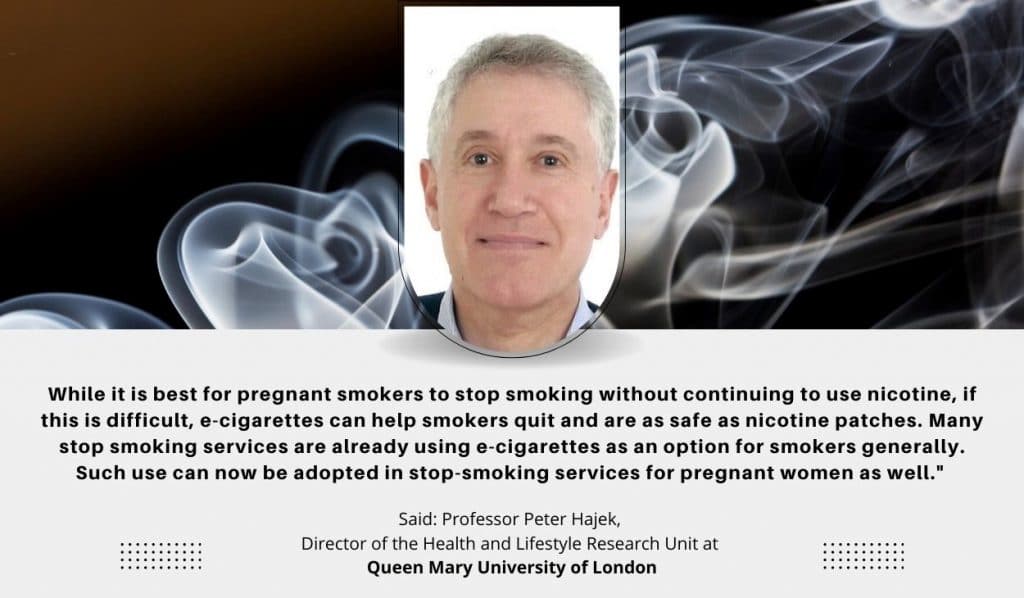New research from the Queen Mary University of London suggests that e-cigarettes may be safer than nicotine patches for pregnant women and could help more females quit smoking. This month, the research was published in Nature Medicine and is considered the first study to evaluate these products’ safety and efficacy among smokers who are also expecting parents.
While pregnant women often find it difficult to give up smoking, some struggle more than others. Women from disadvantaged socio-economic backgrounds have been found with the greatest difficulty in quitting cigarettes even after trying two different medications that are designed for this purpose: nicotine replacement treatments such as gum or patches and bupropion, an anti-depressant drug that has shown limited success so far but no harm when used during pregnancy.
Studies show that women who are not pregnant can benefit from using e-cigarettes in place of nicotine patches and even do not lead to any danger to both babies and mothers during pregnancy.
The new study, conducted in the United Kingdom, involved 80 pregnant smokers who wanted to quit. The women were divided into three groups: those using e-cigarettes with nicotine, those using e-cigarettes without nicotine, and those using a nicotine patch. After one week, the researchers found that 14% of those using the nicotine-free e-cigarettes had abstained from smoking, compared to 8% of those using patches and none of those not using any products. After two weeks, this number rose to 21% for the nicotine-free e-cigarettes group and remained at 8% for the patch group.
The research team also found that e-cigarettes were more effective than patches in reducing the number of cigarettes smoked by those who did not abstain from smoking. On average, pregnant women using e-cigarettes with nicotine puffed on 10 fewer cigarettes per day than those using nicotine patches, while those using nicotine-free e-cigarettes smoked six fewer cigarettes.
Both groups had similar adverse effects and birth defects in women. Also, low birth weight (less than 2.5 kg) was lower in the e-cigarette group (9.8% vs. 14.8%). This is likely because women who used e-cigarettes smoked less than those accepting nicotine patches.

These findings suggest that e-cigarettes are a promising option for pregnant women who want to quit smoking and that more research is needed to evaluate their long-term safety. In the meantime, however, it is important for expecting mothers to talk to their doctor about the best way to quit smoking for them and their babies.







